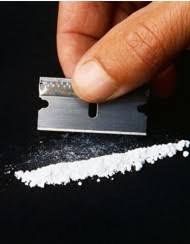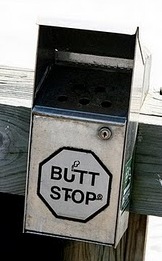May 5th, 2011 by Steven Roy Daviss, M.D. in Health Policy, Opinion
No Comments »



 The White House released its plan last week entitled “Epidemic: Responding to America’s Prescription Drug Abuse Crisis” [LINK to pdf of this 10-page plan]. Below are some of the elements in this plan that is part of the National Drug Control Strategy (like that has worked so well :-/).
The White House released its plan last week entitled “Epidemic: Responding to America’s Prescription Drug Abuse Crisis” [LINK to pdf of this 10-page plan]. Below are some of the elements in this plan that is part of the National Drug Control Strategy (like that has worked so well :-/).
The areas of this plan involve education of prescribers and users, monitoring programs, making it easy to dispose of controlled dangerous substances (CDS for short), and enhancing enforcement. The plan establishes thirteen goals for the next five years, and also creates a coordinating body, the Federal Council on Prescription Drug Abuse, to oversee and coordinate it all.
If any of our readers have comments on specific items (I’ve numbered them for ease of reference), including unintended (or even intended) consequences, please chime in.
- EDUCATION
- require training on responsible opiate prescribing
- require Pharma to develop education materials for providers and patients
- require professional schools and organizations to include instruction on balancing use of opiates for pain while reducing abuse
- require state licensing boards to include relevant ongoing education in their licensure requirements
- help ACEP develop guidelines for opiate prescribing in the Emergency Department [this should be a big help]
- increased use of written patient-provider agreements
- facilitate public education campaigns, especially targeting parents
- encourage research on low-abuse potential treatments, epidemiology of substance abuse, and abuse-deterrent formulations Read more »
*This blog post was originally published at Shrink Rap*
January 30th, 2011 by Glenn Laffel, M.D., Ph.D. in News, Research
No Comments »

 Although cocaine use has declined steadily since its peak in the early 1980s, public health officials estimate that about 7 million Americans used the drug at least once last year. Many of these folks are addicted to the drug, and its intense, short-lived euphoric effects mean the addiction is terribly difficult to overcome.
Although cocaine use has declined steadily since its peak in the early 1980s, public health officials estimate that about 7 million Americans used the drug at least once last year. Many of these folks are addicted to the drug, and its intense, short-lived euphoric effects mean the addiction is terribly difficult to overcome.
Addiction specialists believe existing treatment paradigms for cocaine addiction can be enhanced by a vaccine that prevents the drug from crossing the blood-brain barrier, thus blunting its euphoric effects. Scientists have worked hard to develop such a vaccine, but have had limited success so far.
About a year ago for example, Thomas Kosten and colleagues at Baylor reported partial success in a human trial of a cocaine vaccine. In that trial, 38 percent of subjects who received all five shots in the vaccine series achieved sufficient antibody levels to blunt the effects of the drug. In that subset, 53 percent of the subjects stopped using cocaine, meaning that overall, the vaccine worked about 20 percent of the time. Read more »
*This blog post was originally published at Pizaazz*
September 7th, 2010 by RyanDuBosar in Better Health Network, Health Tips, News, Research
No Comments »

 Doctors may want their patients to stick with a smoking cessation regimen even if it’s not initially working, report researchers who found that “delayed quitters” accounted for a third of former smokers who went a year without cigarettes.
Doctors may want their patients to stick with a smoking cessation regimen even if it’s not initially working, report researchers who found that “delayed quitters” accounted for a third of former smokers who went a year without cigarettes.
Quit rates may be significantly increased by just continuing in motivated but initially unsuccessful patients during the first eight weeks of treatment, according to research published online in the journal Addiction. There’s actually two types of successful quitters: Those who quit immediately and those who are “delayed” but eventually successful. Read more »
*This blog post was originally published at ACP Internist*
August 20th, 2010 by Steven Roy Daviss, M.D. in Better Health Network, Health Policy, Humor, News, Opinion, Research, True Stories
No Comments »



By ClinkShrink
There’s always something new, even in the world of substance abuse. Lately I’ve been reading a lot in the media about K2, a synthetic cannabinoid that’s being sold (and outlawed) in many states. It’s commonly mixed with herbal incense and smoked. Nicknamed “spice,” it was originally created by scientists and called JWH-018.
Apparently some states’ poison control centers have been getting calls about it due to the physical symptoms it can cause, specifically palpitations and GI problems. The part of the story that I thought was interesting was the fact that originally only 250 milligrams of the stuff was created, in an “official” research lab, but that home chemists quickly took up the experiment and it’s now a part of our national drug culture. Read more »
*This blog post was originally published at Shrink Rap*
August 7th, 2010 by Berci in Better Health Network, Research
No Comments »

Psychological Science, a journal of the Association for Psychological Science, published a very interesting paper focusing on the genetic background of social drinking. Specific gene variants might increase the risk for extensive alcohol use or abuse when spending time with heavy-drinking peers. An excerpt from Medical News Today:
Drinking alcohol increases levels of dopamine –- a brain chemical that causes pleasure and makes us feel good. The dopamine D4 receptor gene (DRD4) has been shown to be involved in motivation of seeking out rewards. Research has suggested that carrying a specific form (or variant) of this gene –- one that includes seven or more repeats of a certain section of the gene –- may be associated with craving caused by alcohol-related cues. Psychological scientist Helle Larsen from Radboud University in The Netherlands and her colleagues wanted to investigate if this 7-repeat gene variant plays a role in how an individual responds to alcohol-related cues.
The results showed an effect between how much the confederate drank and the gene variant on volunteers’ alcohol consumption: When the confederate was seen consuming three or four drinks, carriers of the 7-repeat form of the gene drank more than twice as many glasses of alcohol than did noncarriers of the gene variant. However, when the confederate consumed only one drink, there was no difference in alcohol consumption between carriers and noncarriers. These findings suggest that individuals carrying this form of the DRD4 gene may be more sensitive than noncarriers to other people’s drinking behavior.
*This blog post was originally published at ScienceRoll*

 The White House released its plan last week entitled “Epidemic: Responding to America’s Prescription Drug Abuse Crisis” [LINK to pdf of this 10-page plan]. Below are some of the elements in this plan that is part of the National Drug Control Strategy (like that has worked so well :-/).
The White House released its plan last week entitled “Epidemic: Responding to America’s Prescription Drug Abuse Crisis” [LINK to pdf of this 10-page plan]. Below are some of the elements in this plan that is part of the National Drug Control Strategy (like that has worked so well :-/).




 Doctors may want their patients to stick with a smoking cessation regimen even if it’s not initially working, report researchers who found that “delayed quitters” accounted for a third of former smokers who went a year without cigarettes.
Doctors may want their patients to stick with a smoking cessation regimen even if it’s not initially working, report researchers who found that “delayed quitters” accounted for a third of former smokers who went a year without cigarettes.










